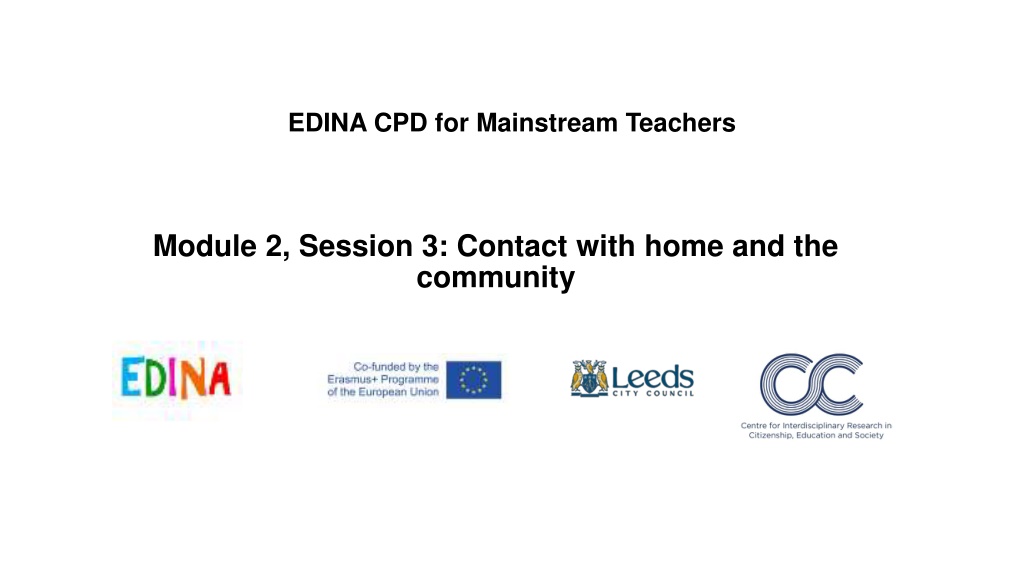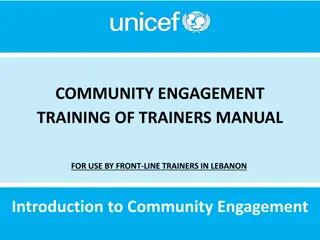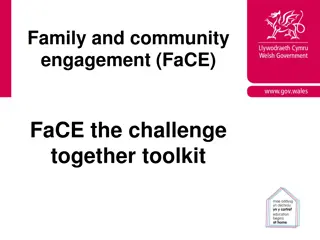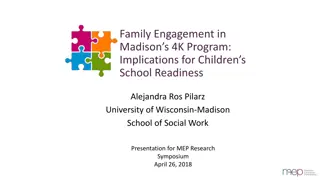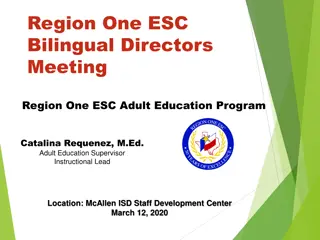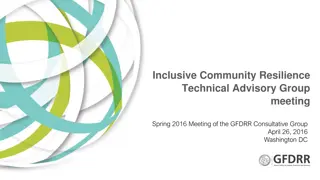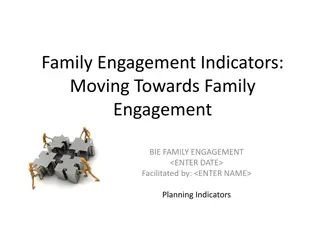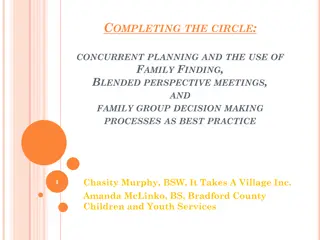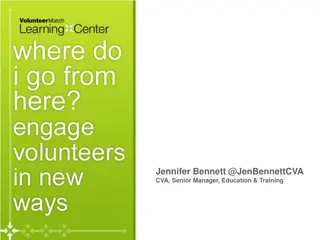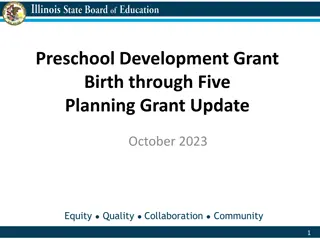Enhancing Education Through Family and Community Engagement
Inclusive and equitable education is achieved through effective family and community engagement, which positively impacts student achievement. Engagement dimensions include providing a secure environment, intellectual stimulation, and active participation in school activities. Building equitable relationships between schools and families is crucial for meeting diverse needs and enhancing home-school partnerships.
Download Presentation

Please find below an Image/Link to download the presentation.
The content on the website is provided AS IS for your information and personal use only. It may not be sold, licensed, or shared on other websites without obtaining consent from the author. Download presentation by click this link. If you encounter any issues during the download, it is possible that the publisher has removed the file from their server.
E N D
Presentation Transcript
EDINA CPD for Mainstream Teachers Module 2, Session 3: Contact with home and the community
Inclusive and equitable education through Inclusive and equitable education through family and community engagement family and community engagement Family engagement, whether construed as home-based behaviours (such as helping with homework), school-based activities (attending school events), or parent-teacher communication (talking with the teacher about homework), has been positively linked to indicators of student achievement and with other indicators of school success Well-planned and well-implemented family and community involvement activities contribute to pupils' achievement and success in school Achieving inclusive and equitable education requires interactive teaching strategies and actively acknowledging and appreciating cultural differences and similarities in and outside the classroom to foster skills and transfer knowledge between children with different language backgrounds (Show video https://youtu.be/Kr7odmvNFcQ )
Dimensions of Engagement Dimensions of Engagement Family engagement may include the provision of a secure and stable environment, intellectual stimulation, parent-child discussion, good models of constructive social and educational values and high aspirations relating to personal fulfilment and good citizenship; contact with schools to share information; contact participation in school events; participation in the work of the school; and participation in school governance
Building an Equitable Relationship Building an Equitable Relationship Effective engagement occurs when families and schools commit to building an equitable relationship that offers a non-judgmental and supportive affinity Teachers ability to create a collaborative effort to meet migrant families' needs is indispensable in working with a population whose needs are multifaceted schools- in collaboration with community agencies and other educational institutions- could effectively fulfil the educational needs of parents without subscribing to the deficit psyche. This effort will enhance two-way communication and is likely to be valuable and increase the effectiveness of home-school relationships
Positive communication Positive communication Parent involvement programmes that effectively engage diverse families acknowledge, respect, and address cultural and class differences Parent involvement programs that effectively engage diverse families acknowledge, respect, and address cultural and class differences Several barriers can get in the way of communicating with families, such as a one size fits all approach (in communication channels), language barriers, jargon and abbreviations and assumptions that families know the education system. Teachers need to check if they are really communicating with families and understand their own unconscious biases.
Empower Families Empower Families Facilitate opportunities for families to share their knowledge and experience to become better partners in education The family's role is significant in supporting their children by encouraging them to set goals, plan, and manage their time, effort, and emotions. This support can help children regulate their learning and will often be more valuable than solely help with homework tasks.
Top Tips Top Tips Be optimistic about the potential of collaborating with parents but cautious about the best approaches. Communicate with parents for positive reasons first and focus on building trust and relationships. Talk to less involved parents about what support they would find helpful. Teachers guide their subject areas for parents to support pupils at home. Create space- EAL Coffee mornings Support parents with communication at home and parent's evening. Consistency approach to what is happening at home and school. Use techniques like asking for a meeting or visiting a family home; visit the ones you do not hear from. Ensure such a visit is culturally accepted and not seen as an intrusion.
Top Tips Top Tips (Cont.) Departments draw from people in the community as teaching or learning aids. Use this learning to engage pupils in the lessons. Avoid assumptions - we assume that everybody understands each other, and they don't. Develop collaborating and signposting trends with housing, social care and other relevant sectors, which are vital to alleviate families' challenges and support them to engage actively with their children's education. Leadership- prioritise family engagement and build ability to support student achievement. The school leader needs to set the tone and culture that this is a welcoming environment that opens doors to the community, value parent input, and look at things from different angles/perspectives.
